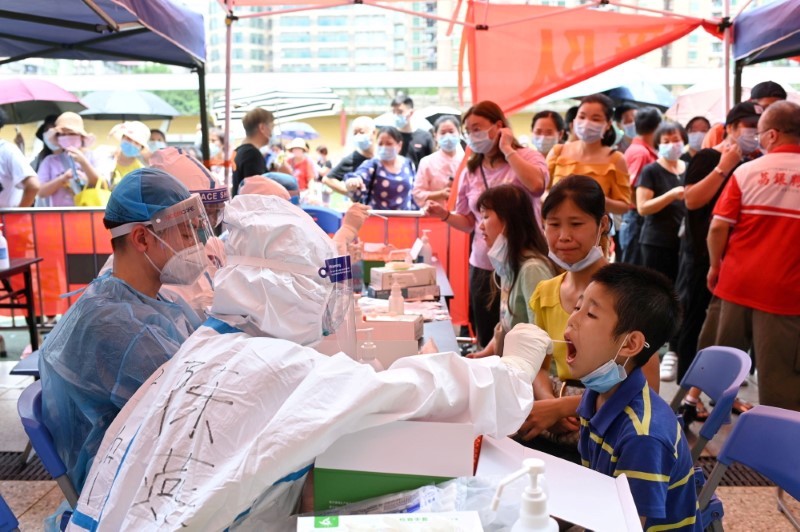China’s economy lost momentum in July as factory output and retail sales growth slowed sharply as Covid-19 outbreaks and floods disrupted activity.
Industrial production in the world’s second-largest economy increased 6.4% year-on-year in July, data from the National Bureau of Statistics (NBS) showed on Monday. Analysts had expected output to rise 7.8% after growing 8.3% in June. Retail sales increased 8.5% in July from a year ago, far lower than the forecast 11.5% rise and June’s 12.1% uptick.
China’s economy has rebounded to its pre-pandemic growth levels, but the expansion is losing steam as businesses grapple with higher costs and supply bottlenecks. New Covid-19 infections in July also led to fresh restrictions, disrupting the country’s factory output already hit by severe weather this summer. Travel restrictions and strict local lockdowns to curb the recent flare-up across the nation also hit consumer spending.
“The big slowdown resulted from a slew of growth headwinds,” said Ting Lu, chief China economist with Nomura Holdings in Hong Kong. Those included “heavy rainfalls and floods in Henan and the Yangtze River Delta, the worst virus resurgence since the initial Wuhan outbreak, weaker exports and Beijing’s targeted tightening measures in the property and high-polluting sectors.”
Markets Fall
The worse-than-expected data dragged down Asian markets. The MSCI’s broadest index of Asia-Pacific shares outside Japan eased 0.5%, back toward lows for the year touched last month. Chinese blue chips were hanging onto gains of 0.2%, perhaps in anticipation of a more aggressive policy easing from Beijing.
“The data will likely intensify speculation of further bank reserve requirement cuts in the weeks ahead and be positive for bonds,” analysts at TD Securities wrote in a note.
The Nikkei in Japan fell 1.7%, though growth topped forecasts for the June quarter. Nasdaq futures and S&P 500 futures were both down 0.2%. EUROSTOXX 50 futures fell 0.5% and FTSE futures 0.6%.
Oil and fuel production also fell to the lowest since May 2020 as independent plants slashed production amid tighter quotas, high inventories and weakening profits. Processing volumes in July were 59.06 million tonnes, or 13.9 million barrels per day (bpd), 0.9% below the same month of 2020, NBS data showed. Independent plants scaled back processing in the face of tightening quotas and Beijing stepping up scrutiny of trading permits.
The urban unemployment rate ticked up to 5.1% while the shortage of semiconductor chips also affected production, said Iris Pang, an economist with ING in Hong Kong.
“Given China’s ‘zero tolerance’ approach to Covid, future outbreaks will continue to pose significant risk to the outlook, even though around 60% of the population is now vaccinated,” Louis Kuijs, head of Asia economics at Oxford Economics, said.
Home Prices Slow
China’s new home prices rose at the slowest clip in six months in July, as authorities further tightened rules in the red-hot property sector, including limits on some categories of purchases. Average new home prices in China’s 70 major cities rose 0.3% in July from a month earlier, slowing from a 0.5% gain in June, according to Reuters calculations based on data released by the Bureau of Statistics.
China’s property market rebounded quickly from the Covid crisis last year, triggering concerns about financial risks in an overheated market. That prompted authorities to step up curbs this year, including restrictions on borrowing by developers, caps on banks’ lending to the sector, guiding banks to raise mortgage rates and a crackdown on illegal funding in the market.
• AFP, Reuters and Jim Pollard
ALSO SEE:
Policy Easing Rumours Grow as China’s Bounceback Loses Steam
What will it be like when China’s bounceback passes its peak?
























